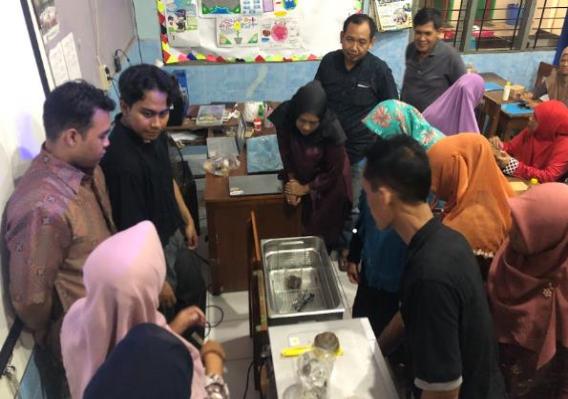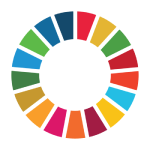FMIPA UNY Empowers PKK to Process Waste into Plant Supplements

The Community Service Team (PkM) of the Faculty of Mathematics and Natural Sciences (FMIPA) at Universitas Negeri Yogyakarta (UNY) conducted training and assistance on processing household organic waste into liquid plant supplements based on carbon nanomaterials (CNMs). This activity took place in Warungboto Village, Yogyakarta City, involving the Pendidikan Kesejahteraan Keluarga (PKK) mothers of RT 31/RW 08 as the main partners.
The PkM team consisted of Wipsar Sunu Brams Dwandaru, Ph.D., R. Yosi Aprian Sari, M.Sc., and Nikenasih Binatari, M.Sc., with support from students Luthfi Erzzat Ibrahim, Husein Putra Prihanto, and Muhammad Irfan Rizqullah Soebekti. This program is a continuation of the 2024 activity funded by the Directorate of Research and Community Service, Directorate General of Research and Development, Ministry of Education, Culture, Research, and Technology.
According to Wipsar Sunu Brams Dwandaru, organic waste has become one of the biggest environmental challenges today. If not managed properly, household waste can lead to health problems and groundwater pollution. “Through nanotechnology-based innovation, we aim to present local solutions that support the zero-waste community principle and realize Asta Cita and Sustainable Development Goals (SDGs), especially point 12 on sustainable consumption and production and point 5 on gender equality,” said Brams.
The issue encountered in the field was the low involvement of the community, especially PKK mothers, in managing organic waste. Therefore, the PkM team held socialization and training sessions featuring speakers Prof. Dr. Ariswan, Wipsar Sunu Brams Dwandaru, Ph.D., and Emirul Zukhruf Dirja, S.Si. This activity was attended by 29 participants who enthusiastically discussed simple yet effective ways to manage organic waste into beneficial products.
Students played an important role in the demonstration session on processing organic waste into liquid plant supplements. The process began with drying and oven-heating organic materials, followed by grinding, mixing with water, ultrasonic treatment, filtering, and microwave treatment until producing carbon crusts that serve as the base material for CNMs. The final stage was carried out in the Nanomaterials Laboratory of the Department of Physics Education, FMIPA UNY.
The resulting liquid supplement was then packaged in spray bottles and distributed back to the PKK mothers for use in fertilizing plants around their homes. This activity not only enhanced the community's technical skills but also fostered awareness of the importance of environmentally friendly innovation in daily life.






